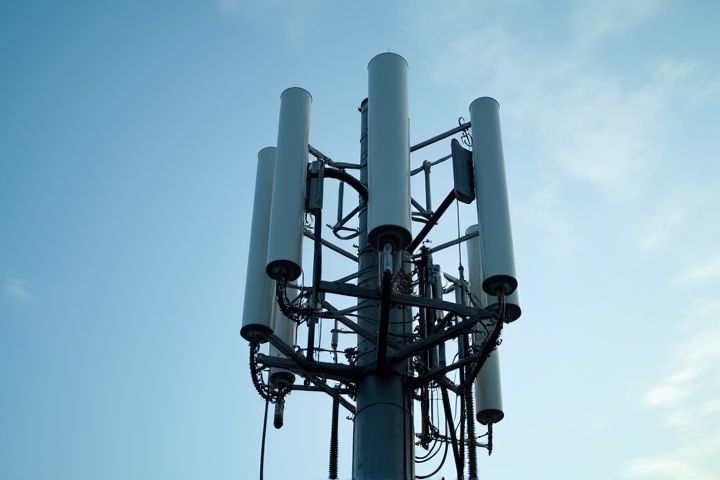
Telecommunication in Nigeria has experienced rapid growth, driven by the expansion of mobile networks and internet accessibility. Major providers such as MTN, Glo, and Airtel dominate the market, offering a variety of services including voice, SMS, and data plans tailored for diverse user needs. The sector plays a critical role in the economy, contributing significantly to GDP growth and employment opportunities. With over 200 million mobile subscribers, Nigeria boasts one of the largest telecom markets in Africa, fostering innovations like mobile banking and e-commerce. Regulatory bodies like the Nigerian Communications Commission (NCC) work to ensure fair competition and consumer protection in this dynamic landscape.
Rapid mobile network growth
Telecommunication in Nigeria has witnessed remarkable growth, driven predominantly by the expansion of mobile networks. With over 198 million mobile subscriptions as of 2023, the sector has transformed communication accessibility for millions. Major players, including MTN and Airtel, have invested significantly in infrastructure, enhancing network coverage and internet reliability across urban and rural areas. This rapid development positions Nigeria as one of the leading markets in Africa's digital landscape, fostering economic growth and innovation.
Dominance of major operators
The telecommunications landscape in Nigeria is characterized by the dominance of major operators, including MTN Nigeria, Airtel, GLO, and 9mobile, who collectively capture a significant market share. These companies drive innovation through competitive pricing, extensive network coverage, and a variety of service offerings that cater to diverse consumer needs. Mobile penetration in Nigeria has surged, reaching over 50% by 2023, as these operators expand their reach into rural areas and improve infrastructure. Your understanding of the market dynamics is crucial for navigating investment opportunities in this rapidly evolving sector.
Internet penetration variability
Telecommunication in Nigeria has experienced significant growth, particularly in internet penetration, which varies widely across urban and rural areas. As of 2023, approximately 50% of the Nigerian population has access to the internet, driven by mobile networks and affordable smartphones. Urban centers like Lagos and Abuja boast higher connectivity rates, while rural regions face challenges such as inadequate infrastructure and limited service providers. Understanding these disparities is essential for policymakers and businesses aiming to enhance digital inclusion and leverage the vast potential of Nigeria's youthful population.
Increasing smartphone adoption
The telecommunication sector in Nigeria is rapidly evolving, driven by the increasing smartphone adoption among its population. With over 200 million residents, a significant portion of Nigerians now access the internet through smartphones, enhancing digital communication and online services. Mobile network operators are expanding infrastructure to support this trend, improving connectivity in urban and rural areas alike. As smartphone penetration deepens, businesses and individuals are leveraging mobile technology for various applications, from e-commerce to mobile banking and social networking.
Digital payment integration
Telecommunication in Nigeria has increasingly prioritized digital payment integration, transforming how individuals and businesses conduct transactions. With the rise of mobile money platforms, users can seamlessly transfer funds, pay bills, and purchase goods and services directly from their devices. Companies like MTN, Glo, and Airtel have launched services that enhance financial inclusion by allowing unbanked populations access to banking-like functionalities. This shift not only boosts the economy but also positions Nigeria as a key player in the African fintech landscape.
Regulatory landscape and reforms
Nigeria's telecommunication sector is characterized by a complex regulatory landscape shaped by the Nigeria Communications Commission (NCC), which oversees policy implementation, licensing, and compliance. Recent reforms have aimed to increase competition, improve service quality, and expand access to digital services across urban and rural areas. This regulatory environment has led to significant investments in infrastructure, fostering innovation in mobile banking and internet services. As a consumer, your experience is directly influenced by these reforms, enhancing connectivity and driving down costs in a rapidly evolving market.
Expansion of broadband access
Nigeria's telecommunication sector prioritizes the expansion of broadband access to enhance connectivity across urban and rural areas. This initiative aims to bridge the digital divide by improving internet infrastructure, promoting affordable data plans, and increasing the availability of high-speed internet services. Investments from both government and private telecom operators are crucial for deploying fiber optic networks and mobile technologies. As a result, you can expect greater access to online services, education, and economic opportunities.
Rural connectivity challenges
Telecommunication in Nigeria faces significant challenges related to rural connectivity, often exacerbated by inadequate infrastructure and limited access to reliable energy sources. Many rural areas lack essential telecommunications services, hindering economic growth and educational opportunities. Government initiatives and private sector investments are increasingly targeting these gaps, aiming to expand network coverage through innovative solutions such as solar-powered base stations and community-driven projects. Enhanced rural connectivity can empower local economies and improve access to vital information and services for your community.
Emergence of 5G technology
The emergence of 5G technology in Nigeria marks a significant advancement in the telecommunications sector, promising enhanced connectivity and faster data transmission. With 5G, users can experience reduced latency, which is crucial for applications such as real-time gaming, telemedicine, and smart city developments. Major telecom providers, including MTN and Airtel, are actively investing in infrastructure to rollout this next-generation network, which is expected to boost economic growth and innovation across various industries. This transition to 5G will empower Nigerians with improved access to digital services, fostering a more connected society.
Cybersecurity and privacy concerns
Telecommunication in Nigeria is increasingly prioritized around cybersecurity and privacy concerns due to the rapid growth of mobile and internet usage. As cyber threats multiply, regulatory frameworks like the Nigeria Data Protection Regulation (NDPR) and the Cybercrime Act aim to safeguard users' sensitive information and enhance compliance among telecommunications providers. With the rise of mobile banking and e-commerce, consumers face heightened risks, making it crucial for businesses to implement robust security measures. You should stay informed about these developments to ensure that your personal data remains protected in this evolving digital landscape.
